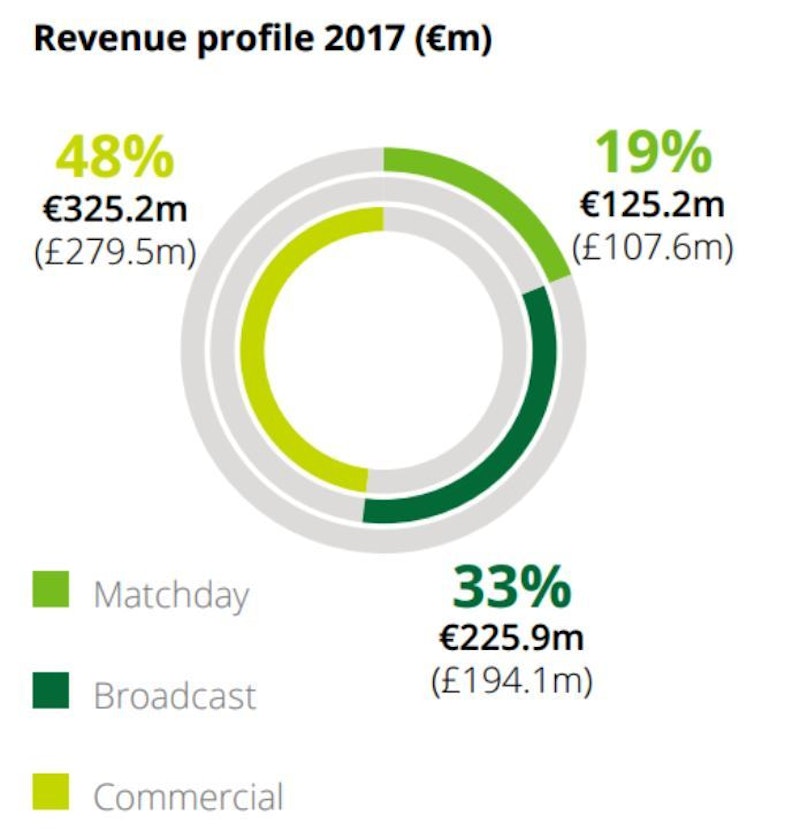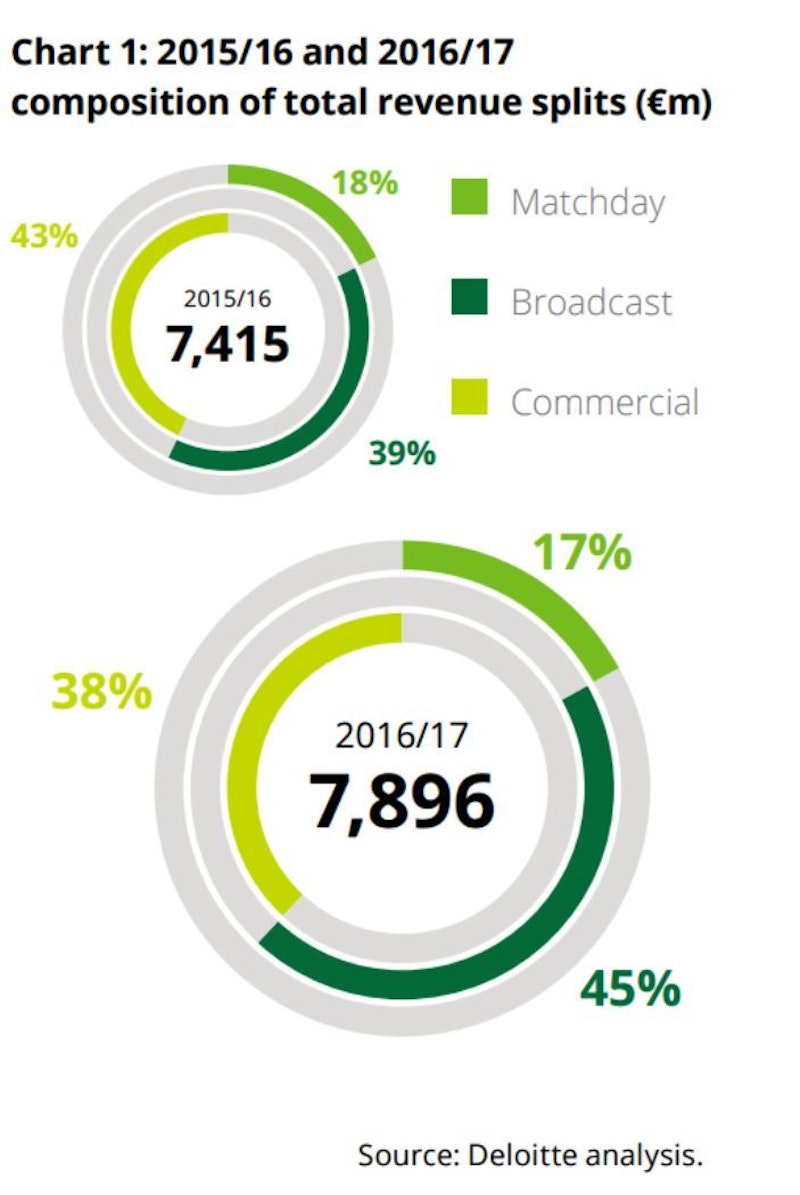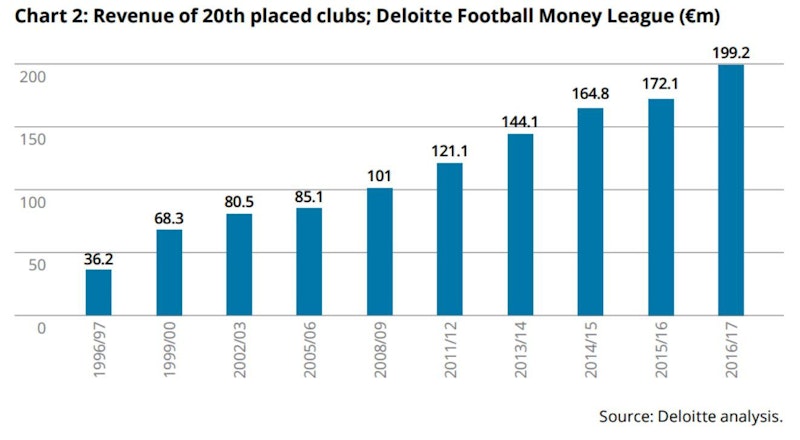In the News
"We're Man United - we're top of the league"
24th January 2018
If you follow football, you may think I have that wrong - at the time of writing, Manchester United are actually second in the Premier League, a full 12 points behind noisy neighbours Manchester City. But the league in question here is the Deloitte Football Money League - and in that one, Manchester United is the world’s highest-earning club, for the second successive year. It achieved revenues of €676.3m during the 2016/17 season, and although that was slightly down from their revenue in the season before, it is enough to keep them just ahead of Real Madrid, despite the Spanish team winning the Champions League, European football’s premier tournament last season. FC Barcelona is in third place. The trio have held the top three positions since the rankings began more than 20 years ago and remain the only clubs with revenues above €600m.
The report is based purely on revenues earned, and doesn't take account of the clubs' debts. What it shows is that, for the world's top 20 earning clubs, matchday revenue from sales of tickets, programmes, pies and pints is less than a fifth of their total income. Much more important are broadcasting revenues from the likes of Sky and BTSport; the Premier League's 3-year deals with the broadcasters, worth £5.14bn, have placed no less than ten English clubs in the world's top 20, and AFC Bournemouth, West Brom, Stoke City and even Crystal Palace make an appearance in the following 21-30th rankings. The top clubs in Spain, France, Italy and Germany can only bring in ten places in the top 20 between them. Dan Jones, partner in Deloitte's Sport Business Group, says that "Looking ahead ... English clubs' dominance will depend heavily on the outcome of the Premier League's ongoing tender for the next three year TV deal starting from 2019-20." - and the negotiations for that deal have already started.
Deloitte's report also highlights the value of commercial sponsorship deals, particularly for those biggest clubs which are on TV all the time, and featuring in European Championship and Europa League matches as well as domestic ones. So, for Manchester United, as this graphic shows, 48% of its income is achieved through an array of sponsorship deals, such as its £750m decade-long kit contract with German sportswear giants Adidas. Last year, the club signed its latest “global partnership” with Melitta, a German coffee machine company.

Like any financial report, this one offers plenty of opportunity to practice your quantitative skills. So, here are some questions to start with.
Using Chart 1 below, calculate the percentage increase in total revenues earned between 2015/16 and 2016/17.
Using the same chart, calculate the amount of revenue earned in 2016/17 from each of broadcasting, commercial deals, and matchdays.
Using Chart 2 below, take 2011/12 as the 'base year' of 100, and calculate the index values for each of the seasons from 1996/97 to 2016/17.


You might also like
An Introduction to Revenues and Demand
Teaching PowerPoints
Finance: Business Revenues (GCSE)
Study Notes
Finance: Estimating Revenues (GCSE)
Study Notes
Revenue and Demand
Study Notes
Revenue and Demand
Topic Videos
